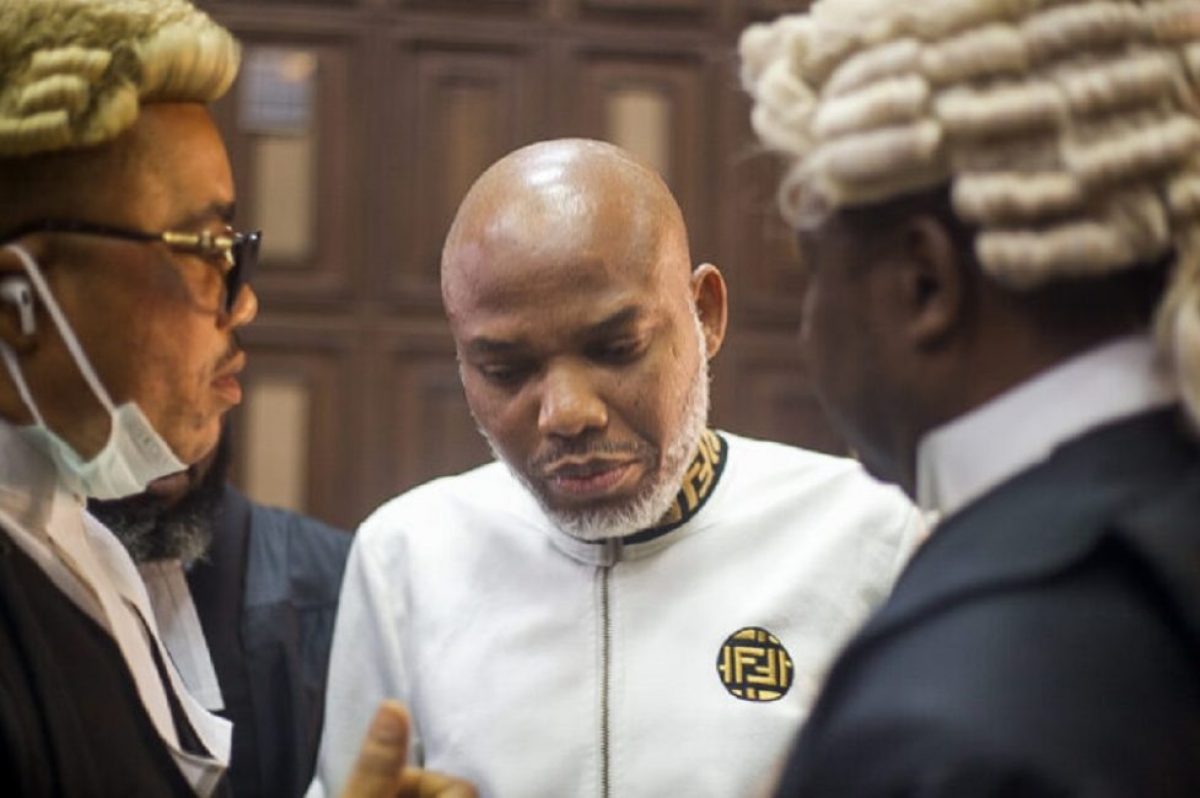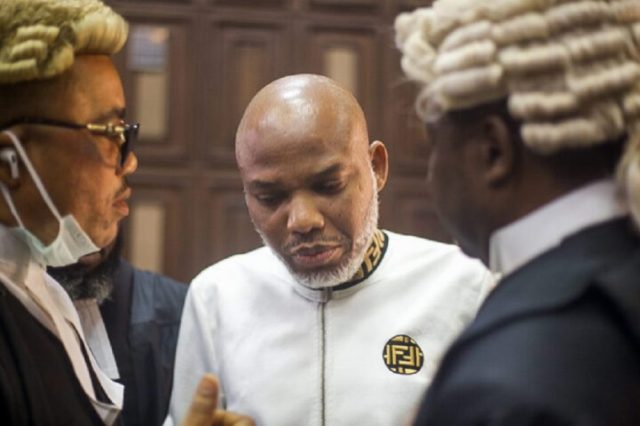 By Uche Amunike
By Uche Amunike
According to a recent directive given by the United Nations, Nnamdi Kanu is to be released from detention with immediate effect and compensated duly for being arrested and held in custody by the Nigerian government without due process.
This directive followed after both the Nigerian and Kenya governments were indicted by the United Nations Human Rights Council Working Group on Arbitrary Detention for the arrest, continued detention, torture and extraordinary rendition of the leader of the Indigenous People of Biafra, Nnamdi Kanu, without following the due process.
The Working Group, which was established in resolution 1991/42 of the United Nations Commission on Human Rights, called on the Nigerian Government to ensure that apart from adequately compensating Kanu for the arbitrary violation of his fundamental human rights, the government officials that are responsible for his torture should be investigated and punished.
According to this Working body of the United Nation, Nnamdi Kanu’s matter should not just be looked into. All recommendations which they have given to the Nigerian government, should be complied with, while feedback is to be given in the next six months.
They have threatened to initiate further actions to ensure those recommendations are complied with, noting that both Kenya and Nigeria are signatories to the convention.
The 16-page report by the Working Group adopted during their 93rd session held between March 30 and April 8, 2022 stated that Nnamdi Kanu was a victim of State persecution as Nigeria failed to provide convincing explanations which proved that he was guilty of treason and other criminal allegations leveled against him.
The report stated: ‘Noting the failure of the Government to explain what actions of Mr Kanu amounted to such criminal acts and how, and observing the lack of any evidence that any of his actions may amount to such crimes, the Working Group concludes that Mr. Kanu is, in fact, being persecuted for the peaceful exercise of his rights, most notably his freedom of opinion and expression.’
‘In the present case, the Government of Nigeria has presented no exceptions permitted under article 19 (3) of the Covenant nor is there any evidence to suggest that Mr Kanu’s exercise of his right to freedom of opinion and expression was anything but peaceful’.
‘In fact, the Government has chosen not to provide any explanation for the arrest, detention, and subsequent proceedings against Mr Kanu. In these circumstances, the Working Group concludes that Mr. Kanu’s detention is thus arbitrary under category II’.
On the part, the Indigenous People of Biafra, IPOB, has commended the United Nations for asking the Nigerian government to set their leader, Nnamdi Kanu, free and has expressed hope that the Buhari’s government will comply with that directive.
The IPOB Spokesperson, Emma Powerful thanked the Working Group for their courage in arriving at the decision to release and compensate their leader. An opinion, which he says, comports with the tenets of international laws







